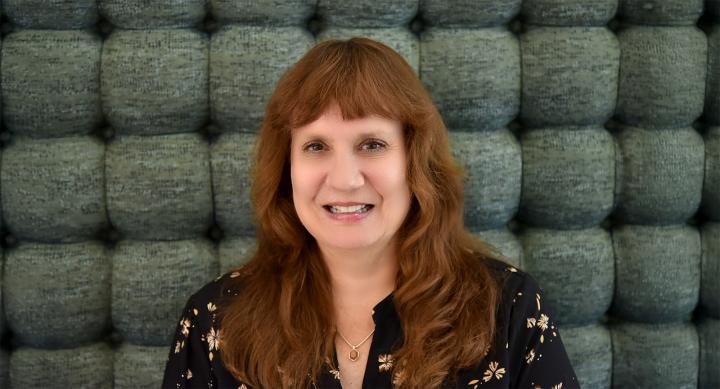
Meet Verónica García Walker, PhD, RN, CNE, clinical associate professor at The University of Texas at Austin School of Nursing.
"I’m grateful for my students,” Walker said. “When I started teaching, I thought I might share something with my students. I did not know then that I would probably learn more from them than they from me. Their kindness and love for humanity amazes and humbles me. Big thanks to all my students who want to save the world and I’m sure they will. You all have taught me so much."
For more than two decades, Walker has devoted her career to supporting adults aging with schizophrenia spectrum disorders. Her work spans clinical care, nursing leadership and education, with a steadfast commitment to reducing stigma and promoting compassionate, respectful care.
At the UT Austin School of Nursing, she has integrated these values into her teaching, guiding students in effective communication techniques for working with this population in psychiatric settings. Her scholarship includes a conceptual model informed by life course theory to better understand the aging experience of individuals with schizophrenia.
In November 2024, she was awarded an R21 grant from the National Institute of Mental Health for her study, “Perceptions and Experiences of Adult Women Aging with the Diagnosis of Schizophrenia Spectrum Disorders in Relation to Social Connectedness,” with Tracie Harrison, PhD, RN, FAAN, FGSA, professor and associate dean for research and scholarship at the University of Iowa, serving as co-investigator. This research continues her collaborative, person-centered approach, recognizing individuals with schizophrenia as experts in their own care.
From her nomination:
“Dr. Walker shows so much passion for the profession of mental health nursing. She is the most passionate teacher I’ve had so far in my nursing school career, and she uses that in her teaching to help us understand the importance of the career. She demonstrates the power of the profession through her optimistic and caring attitude towards both her students and the patients we see at clinical sites. She inspires me to be the kind of nurse who truly loves what she does and to empower fellow nurses as well as patients.”